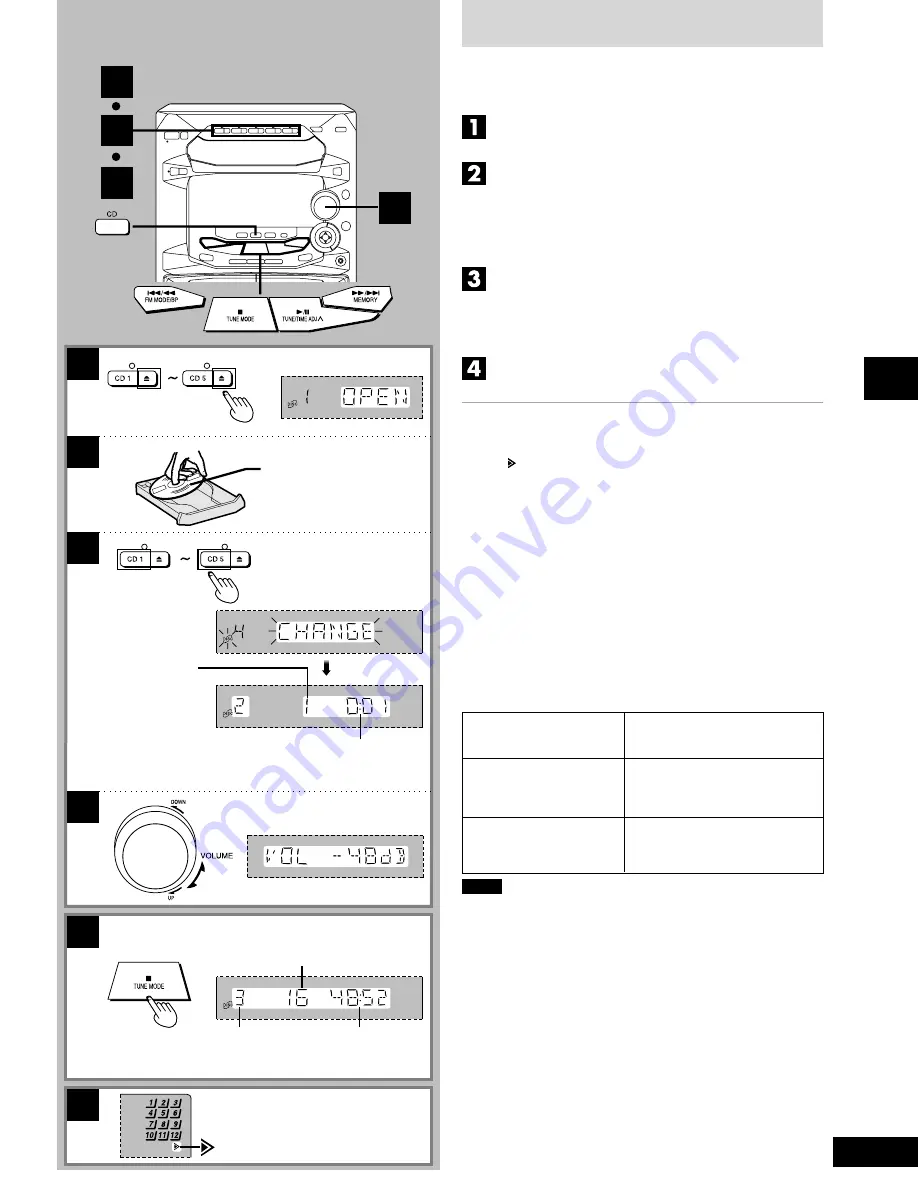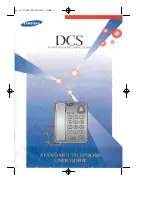
15
RQT5539
Compact disc operations
1
2
4
3
B
A
1
4
2
3
Track number
Elapsed playing time
(Of current track number)
Number of tracks
Total playing time
Label must face upward.
Disc number
Listening to compact discs
Always stop the changer before loading or changing CDs. You cannot
change CDs while a disc is playing.
Press a [
c
] button.
The unit will come on automatically and the tray opens.
Set CD in the tray.
To continue loading CDs in the other trays
Press another [
c
] button to open the required tray.
The current tray closes and the selected tray automatically
opens.
Press the same [
c
] to close the tray.
Press [(CD 1) ~ (CD 5)] to play your desired disc.
(If the desired CD is indicated on the display panel, the same
operation can be accomplished by pressing [
-
/
J
].)
Play will start from the first track on the disc and will continue
until the last track of the final disc is played (see below).
Adjust the volume level.
To stop the disc play
A
Press [
L
].
When “ ” appears on the display
B
It indicates there are 13 or more tracks on the disc in the playing
position.
Disc indicators
The disc indicators light whenever the tray is in the playing position
whether it is loaded or not.
What is meant by “final disc”?
For example, if play starts from disc 4, disc 3 will be the “final disc”.
Order of progression:
Disc 4
➞
5
➞
1
➞
2
➞
3
One touch play
If the unit is in standby mode and a CD is loaded, press [CD] or [(CD
1) ~ (CD 5)].
The unit will come on automatically and play will start.
To pause
Press [
-
/
J
] during playback.
To resume playback, press [
-
/
J
].
To search forward/
Hold down [
g
/
(
] (backward)
backward (Search)
or [
)
/
f
] (forward) during
playback or pause mode.
To skip forward/
Press [
g
/
(
] (backward) or
backward
[
)
/
f
] (forward) during
playback or pause mode.
Notes
•
During random play (page 16), you cannot skip to tracks which
have already been played.
•
During program play (page 17) or random play, you can search
forward or backward only within the current track.
•
During program play, skipping is always in the programmed order,
whether forward or backward.
















































